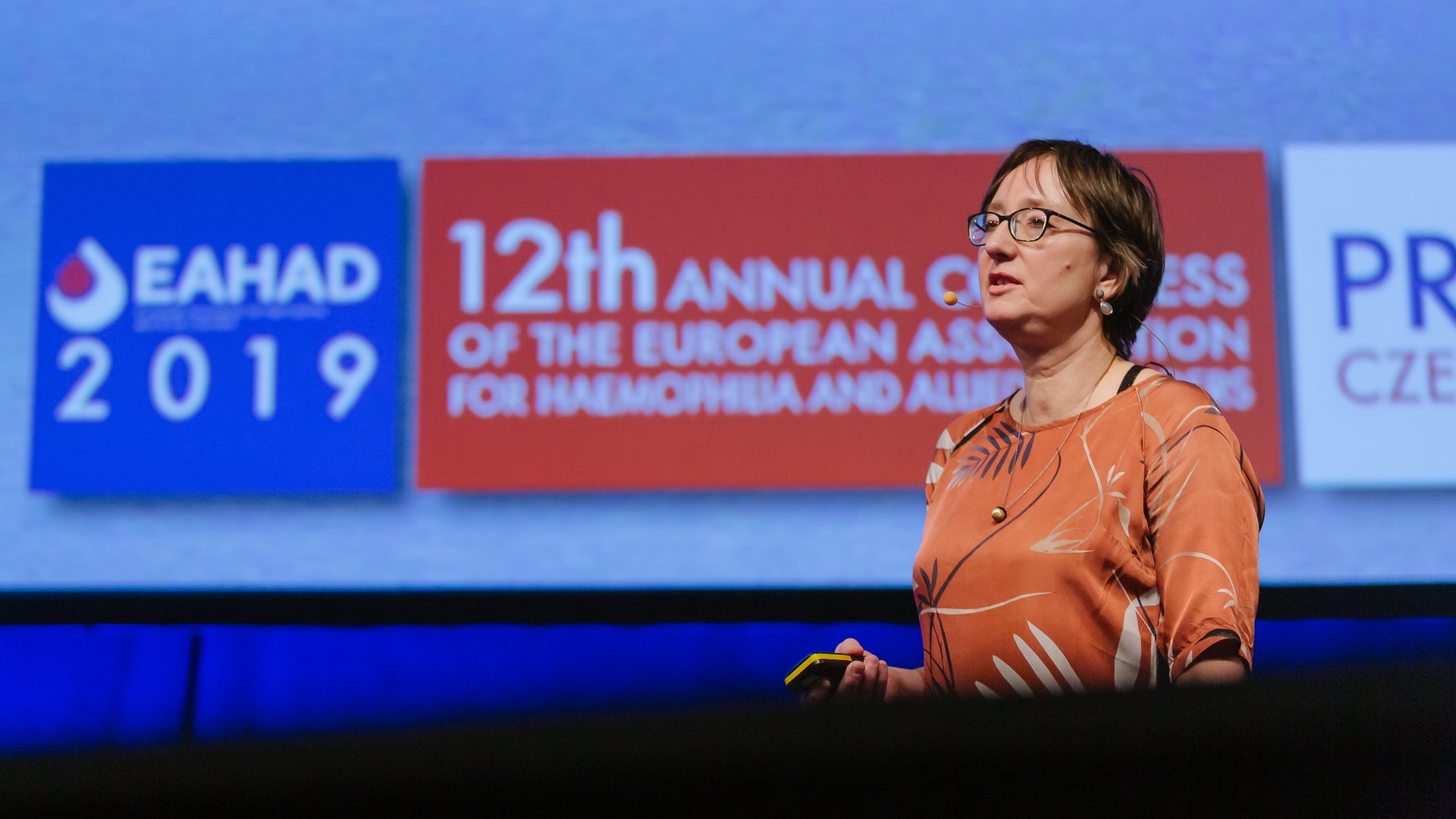Prof. Dr. Karin Fijn van Draat is not only a member of the EAHAD Executive Committee, but also the President of our 2020 Congress taking place from 5 to 7 February 2020 in The Hague, Netherlands. In the lead up to our 13th annual meeting, we had the opportunity to speak with Prof. Fijn van Draat about her background, the most rewarding and challenging aspects of being this year’s Congress President, as well as her views on what the future key issues will be in the haemophilia and allied disorders field in Europe.
Could you share a bit about yourself and your background?
I am currently a paediatric haematologist at Amsterdam UMC. When I was a medical student, I was intrigued by the haemostatic system, since it is so intricately balanced with all its activation and regulation steps, but it struck me as odd that, although haemophilia was a known condition for a very long time, the therapeutic developments only started in the 1960s.
By the time I was doing my PhD in the 1990s, therapeutic developments in haemophilia really started gaining momentum, with all the emerging possibilities of genetic engineering. Back then, I could not anticipate the current, even more novel developments we are witnessing today.
What was the first EAHAD Congress you attended and what attracted you to it?
The first one I attended was the EAHAD Congress in 2015 in Helsinki. I liked the format of not having parallel sessions and the Congress’ size was such that it made networking easily possible.
Now that you are the EAHAD Congress President, is it any different?
It is very exciting to be involved in the organisation of the Congress and to experience all the steps and decisions that need to be made. It was a great opportunity to design, together with my Dutch colleagues, a programme promoting novel research and encompassing all the important aspects of present-day haemophilia care.
As we are about to enter a new decade, what would you consider to be the future key issues for haemophilia and allied disorders care in Europe?
With the current developments, it is truly challenging to predict the future. Ten years ago, I thought that a pill for haemophilia would never be possible. Today, such a pill exists, albeit in a very early phase of development. There is also gene therapy and a licensed subcutaneous treatment, as well as several other subcutaneous treatments in the pipeline. These will provide a higher level of convenience to patients with venous access problems.
The challenges will be 1) to properly monitor the safety aspects of all new treatments, 2) to ensure we can afford these new therapies and, 3) to provide access to adequate treatment for all persons around the world.
How do you think the EAHAD Congress will help address them?
The EAHAD Congress is the place to discuss new developments among all parties forming our community. Together, we can deal with every issue we need to solve.
What has been your favourite part of being the EAHAD Congress President?
I truly enjoyed brainstorming about the programme with the local organising committee. We decided that this year’s theme will be “A Golden Age of Treatment Choice”. The Hague harbours the most exclusive paintings of the Dutch Golden Age and, now, in haemophilia care we are hopefully entering a new “golden” era in treatment.
What about the most challenging?
The challenging part is to keep an eye on the bigger picture, while giving enough attention to important details. Fortunately, the team working on the Congress’ logistical aspects and organisation has done a great job to help with this. I feel privileged to have their excellent support.
You have been one of the biggest supporters of including and promoting the work of younger, aspiring medical professionals working in the field. Many of them will be in The Hague. Do you have something in store for those coming to EAHAD 2020?
The young aspiring professionals are important, as they will be the future leaders of this field. I look forward to seeing some of the young investigators present their work at the SLAM session! There will also be opportunities for those who present a poster to engage actively with the delegates. For the first time this year, there are designated “poster walks” organised during the Congress.
Final question: Outside of your work, what gives you the biggest sense of accomplishment?
I love to be outdoors, walking, rowing or cycling. Especially rowing in an eight-person boat, finding the right rhythm together and speeding over the water is a very rewarding experience.
Finally, it goes without saying that spending time with my husband and three teenage daughters is very precious to me. My daughters are full of energy and curiosity. Thanks to them, every day is a surprise.

